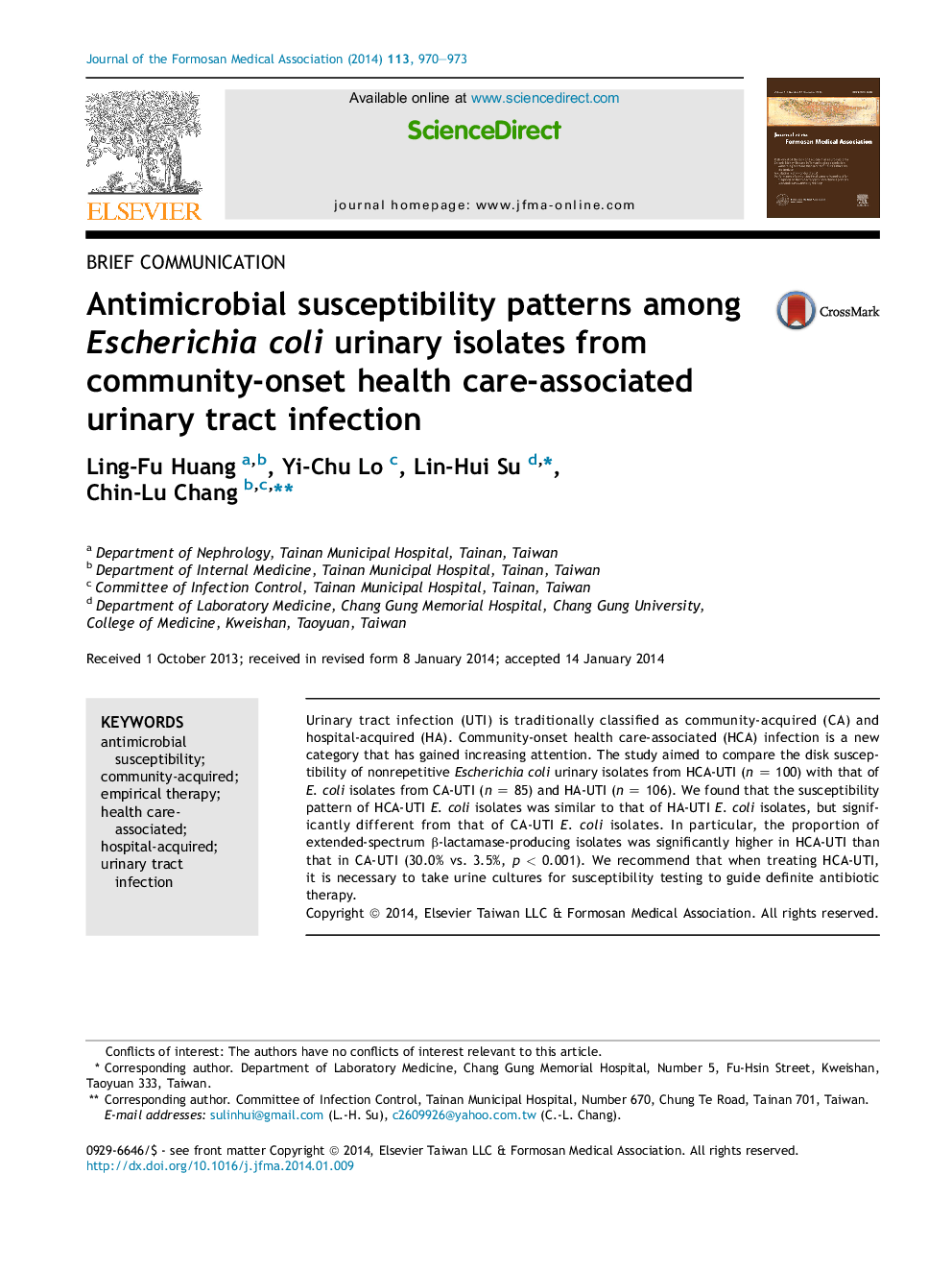| Article ID | Journal | Published Year | Pages | File Type |
|---|---|---|---|---|
| 3478726 | Journal of the Formosan Medical Association | 2014 | 4 Pages |
Urinary tract infection (UTI) is traditionally classified as community-acquired (CA) and hospital-acquired (HA). Community-onset health care-associated (HCA) infection is a new category that has gained increasing attention. The study aimed to compare the disk susceptibility of nonrepetitive Escherichia coli urinary isolates from HCA-UTI (n = 100) with that of E. coli isolates from CA-UTI (n = 85) and HA-UTI (n = 106). We found that the susceptibility pattern of HCA-UTI E. coli isolates was similar to that of HA-UTI E. coli isolates, but significantly different from that of CA-UTI E. coli isolates. In particular, the proportion of extended-spectrum β-lactamase-producing isolates was significantly higher in HCA-UTI than that in CA-UTI (30.0% vs. 3.5%, p < 0.001). We recommend that when treating HCA-UTI, it is necessary to take urine cultures for susceptibility testing to guide definite antibiotic therapy.
